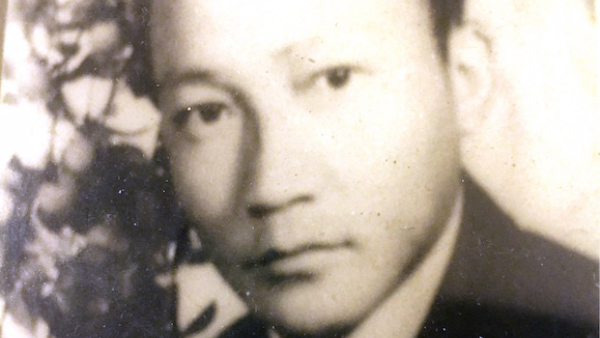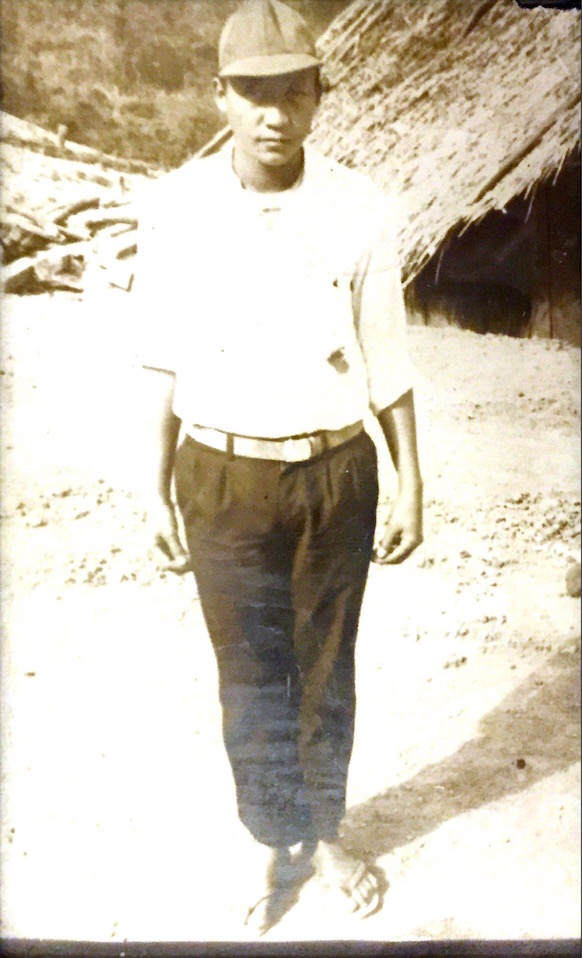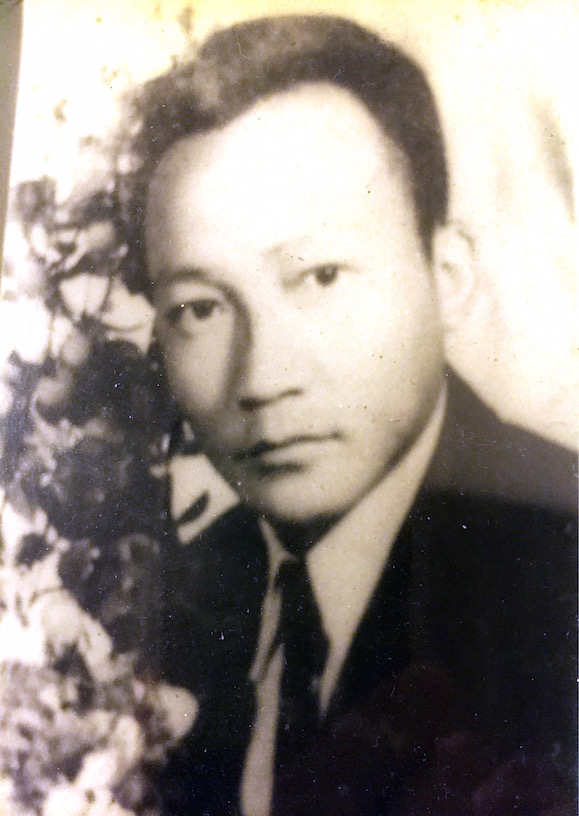Baptism is a covenant we make to do for others what they cannot do for themselves, just as the Atonement provides that which we cannot do for ourselves.
September 5, 2015

Things We Cannot Do for Ourselves
If my father-in-law was able to see his body returned to his village in the mountains of Laos, I’m sure he would have anguished over the tears that his little daughter and wife shed abundantly for him.
Paj Vws Vwj was still a young father at the time, but he was an effective leader and a teacher in his Hmong village.1 Many of the Hmong people in Laos at the time were secretly helping the United States rescue downed pilots in the Vietnam War and fighting the Communists in Laos.2 But the war was now over and the Hmong people were growing concerned about the Communist takeover of their country.

No one knows the details, but my father-in-law was summoned to a meeting at General Vang Pao’s home with his brother and their bodies were simply brought back with the impossible explanation that his brother had killed him and so Vang Pao’s men killed his brother.
Maybe he didn’t see his wife’s journey to escape the Communists through sickness, and the constant threat of death as she traversed the jungles of Laos carrying an infant girl and a 1 year old.
Maybe he didn’t see his infant daughter buried in a shallow grave along the way.
Perhaps he didn’t see his only remaining child and his wife nearly drown as they were pulled by a boat crossing the Mekong river because they didn’t have enough money to pay for the fare to ride on it.
Maybe he didn’t see his little daughter split apart from her mother when her mother remarried into a different clan. In the Hmong culture, the father’s clan can lay claim to the child if the mother divorces or remarries.
If he saw all of this happening, he likely would have felt the pain in his soul, feeling helpless to prevent the suffering of those he loved so dearly.
This feeling of helplessness is something we all experience. There are things we cannot do for ourselves. Baptism is the sign of a covenant we make to remember the One who did something for us that no one else could do. And it is a promise that we will take upon His name to do those things that others cannot do for themselves.
Adam wondered and asked the Lord: Why is it that men must repent and be baptized in water?3
The Lord explained to Adam that as children grow up, sin conceiveth in their hearts, and they taste the bitter that they may know to prize the good. After all, how would you know that something good is valuable unless you knew the opposite?4
And it is given unto them to know good from evil; wherefore they are agents unto themselves, and I have given unto you another law and commandment.
Wherefore teach it unto your children, that all men, everywhere, must repent, or they can in nowise inherit the kingdom of God, for no unclean thing can dwell there, or dwell in his presence; for, in the language of Adam, Man of Holiness is his name, and the name of his Only Begotten is the Son of Man, even Jesus Christ, a righteous Judge, who shall come in the meridian of time.5
After we repent, we want to show our Father in Heaven that we are going to start a new life.
When we are born into this mortal life our bodies and spirits are joined in a process that involves a fair amount of water and blood. To be honest, and those who have participated in any form will acknowledge, it is rather messy. Thankfully, the joy of bringing a precious spirit to this mortal life overpowers the process. However, this process also brings us into a world where we are corruptible, natural, carnal and as we become accountable, sinful. The Lord told Adam:
That by reason of transgression cometh the fall, which fall bringeth death, and inasmuch as ye were born into the world by water, and blood, and the spirit, which I have made, and so became of dust a living soul, even so ye must be born again into the kingdom of heaven, of water, and of the Spirit, and be cleansed by blood, even the blood of mine Only Begotten; that ye might be sanctified from all sin, and enjoy the words of eternal life in this world, and eternal life in the world to come, even immortal glory; 6
We become like an innocent child again, using the same elements of water and spirit that were present when we were born into this mortal life. Except this time, we are born again into the kingdom of heaven. We recognize that this is only possible through the Atonement of Christ who offered his body and blood to be a sacrifice for us. We recognize that His Atonement is something that we could not do for ourselves. The Only Begotten is the only one who could redeem us. After we are born again of water and of the Spirit, we recognize that we must continue to be cleansed by His blood that we might be sanctified.
For by the water ye keep the commandment; by the Spirit ye are justified, and by the blood ye are sanctified;7
Baptism is a powerful symbol of death and rebirth.8 With that rebirth we come to the Lord, with broken hearts and contrite spirits,9 like a child,10 knowing and promising to remember that He did what we could not do for ourselves.
This special ordinance may be something my father-in-law witnessed. After his little daughter was split apart from her mother, she grew up with much adversity in the refugee camps in Thailand. While her struggles would have broken his heart, maybe he saw her finally come to America when she was 13. He may have realized those hardships made her just stubborn enough to start listening to some Hmong-speaking missionaries from the Church of Jesus Christ of Latter Day Saints a couple of years later, even though her family was completely against it.
She prayed and knew it was true. If he witnessed her baptism, he would have seen his courageous daughter go against everything in her culture to show that she knew, in her heart that there was something she could NOT do for herself. He would have seen her take upon herself the name of Jesus Christ, having a determination to serve Him to the end.11
When we are baptized, we acknowledge that it can only by the proper authority, something we cannot take upon ourselves,12 but can only be given by those are authorized. We need someone holding the Aaronic Priesthood in the office of a priest, who knows that the authority he has is used to serve others. That same power of the Aaronic Priesthood administers the sacrament, an ordinance where we promise to remember our covenants. As we take the bread to remember the body of Jesus Christ, and we take the water to remember His redeeming blood, we are promised the Spirit will be with us always as we keep the commandments.13
One of the most important promises we make is take upon ourselves the name of Jesus Christ. We make the covenant to bear one another’s burdens, that they may be light.14 We declare that we are:
… willing to mourn with those that mourn; yea, and comfort those that stand in need of comfort, and to stand as witnesses of God at all times and in all things, and in all places that [we] may be in, even until death, that [we] may be redeemed of God, and be numbered with those of the first resurrection, that [we] may have eternal life.15
We manifest by these works that we have received the Spirit of Christ.16 Another way to say this would be we promise to do help others do things that they cannot do for themselves. Whether, as it is declared in the Church's divinely appointed responsibilities that we care for the poor and the needy,17 or we give them the knowledge they need to make proper choices to receive the saving ordinances of the gospel.
In essence, we promise that we will do the same things that Christ would do if he were here. There are those who need our help, spiritually and temporally, to do the things they cannot do themselves. We can be the hands of Christ and lift them up.18 Through our examples of Christ-like living and love for them, we can turn them to the only One who can redeem them.
Maybe my father-in-law received missionaries in the spirit world to teach him as he saw his daughter be baptized and then later marry some extremely fortunate white guy in the Salt Lake Temple. Maybe he believed and wanted these same blessings for himself and his ancestors. But there was something he could not do for himself. He wanted to be baptized, but he was missing his body.
In the temple, we can provide the great blessing of baptism for those who have passed on. They need our help because they cannot perform these saving ordinances themselves.
I took Paj Vws Vwj's name to the temple to perform his baptism and confirmation and then onward through the endowment. As I did so, the Spirit confirmed to me very powerfully that he was grateful, just as I was grateful that he had a wonderful daughter who saw fit to marry me. And through the experience I learned that in addition to the Savior's all-encompassing Atonement, which does for me that which I cannot do for myself, my father-in-law also did something for me that I could no do myself. He provided me an opportunity to serve, to know what it is like to stand in for the Lord and help bring someone else the ordinances of salvation.

I am forever grateful for these blessings. In the name of Jesus Christ, amen.
Written by Ken Torgerson on September 5, 2015
